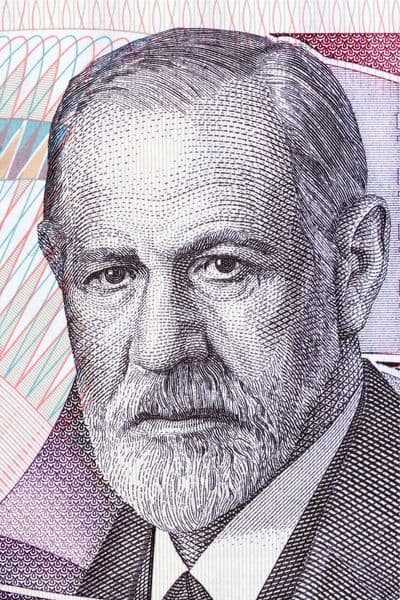Dreams have proven to be gateways to many scientific breakthroughs, the production of great art, and the secret ingredient to many mathematical proofs. Dreams do not just reveal things about our personal lives.
Dream interpretation has been a fascinating topic for many centuries, from the Greek philosophers to interpreters in the Roman Empire and to modern science. Sadly, up to date, the topic is still a highly debated one with varying schools of thought and conflicting ideas.
Some psychologists and experts believe dreams can be used to bring to light the insights of the unconscious mind, thereby predicting the future or reconciling with the past.
Others believe dreams are just biological, brought about by chemical reactions that spring to life random imagery in the dreams. Despite the differences, it is known that dreams reflect the state of our unconscious, signaling suppressed thoughts and revealing common dream symbolism.
So, do dreams reveal the truth? Are your dreams telling you something?
You are about to find out. Before we dive deeper, it is important to note that dream interpretation is not a perfect science. By the end of this article, you will know why.
History of Dream Interpretations
You need not know anything about science or psychology to interpret dreams. Our ancestors did it for centuries, and it is the prologue to many great tales. From the Joseph and Daniel stories of the Old Testament to the prophetic tales told beforehand by the Greek and Roman dream interpreters.
Every culture has a belief or tradition revolving around the meaning of dreams. In almost all cases, the dreams pointed to divine intervention.
Mesopotamian kings in 3100 BC paid huge attention to their dreams for any heavenly signs that later led them to build huge temples. The epic tales of Gilgamesh mention many accounts of prophetic dreams and accounts of seeing the afterlife.
Egyptians have many persevered Hieroglyphics that depict the great skills of their priests, who acted as dream interpreters. Many were accurate.
Greece also has a huge history of dream interpretation. Oneirocritica, meaning ‘interpretation of dreams,’ is a dream text that was written in the 2nd Century depicting how the Greeks saw dreams as prophetic and meaningful.
Dreams took many shapes and forms and featured a variety of symbolism and imagery, all unique to their own culture. Most interpretations were considered a matter of belief & trust, but in the 19th Century, Sigmund Freud came in and incorporated dream interpretation into psychoanalysis.
The Science Behind Dream Interpretation
Sigmund Freud started the modern view we have today of dream interpretation. Freud believed dreams have meaning, and so did his successors. However, as time went on, some of his ideas were challenged; some withstood the test of time, while others were frail in the eyes of modern neuroscience.
Most Acknowledged Views and Schools of Thought: Why We Dream
Sigmund Freud’s Interpretation of Dreams

Famous psychologist Sigmund Freud began his dive into the topic with the 1899 “Interpretation of Dreams.” The book not only popularized the idea of dream interpretation but also laid a foundation for psychoanalysis as we know it today.
Freud says a dream is an unconscious mind trying to convey its wishes through hidden imagery. That dreams have meaning, but the meaning is always hidden in layers on top of layers.
After many hours of researching and talking to patients, Freud concluded that most of the wishes conveyed by the mind were unfulfilled desires.
It is a commonly held belief that these unfulfilled desires are sexual. This is because Freud wrote down many sexual symbolisms. At one point, he compares a penis to the number three, then to a snake, and then the penis to an umbrella. However, it should be noted that Freud explicitly mentions that not all dreams require sexual interpretations.
Another note in the book (which has been proven true) is that dreams guard to sleep. Freud states that dreams do not just tell us something about the unconscious but also help us stay asleep to avoid the risk of any disturbance. Dreams are guardians of sleep that keep you in slumber for longer by fulfilling your wishes.
Freudian Interpretation of dreams is still the most widely used method for interpreting dreams across many countries and cultures.
Jungian Interpretation of Dreams

Carl Jung was a student of Sigmund Freud. His views aren’t so different from Freud’s, but Jung believed dreams have more meaning than the manifestation of unfulfilled wishes.
He believed that dreams weren’t just bringing to ‘life’ what we wished to happen but also showed us some patterns and brought out other insights into daily events.
For example, Freud would interpret a sexual dream as the dreamer wishing to have such relations in real life. Jung, on the other hand, said that such a dream could mean a lot of things; maybe you read something that made you think about it, maybe it was part of a debate, or it’s a happy memory getting replayed.
Other Theories
Some psychologists like Ann Faradya, Rosaling Cartwright, and William Domhoff expounded on Jung and Freud’s ideas, still maintaining that dreams have meaning.
The beginning of the 21st Century saw advancements in neuroscience, where the brain got to be studied extensively during REM sleep. Most of Freud’s theory still holds, but others sprung to life too.
One such theory is the activation-synthesis theory which states that dreams are just a compilation of random images, memories, and thoughts. Electrical impulses in the brain are triggered during REM sleep which causes your brain to generate random scenarios that make up the dream. But that is not the interesting part.
The interesting part is that the dream is not experienced when you are asleep. The brain cannot make sense of the scenarios when you are in REM sleep since brain function at that time is passive. When you wake up, your brain switches to active and kicks into high gear to make a sensible narrative – the dream.
Despite the lack of inherent meaning, it is stated that the dreamer’s efforts to make the random scenarios into a sensible narrative bring about meaning. Your mind gives you a meaningful and creative insight or epiphany by trying to make sense of randomness.
All in all, all theories, as current research stands, point to dreams having meaning. However, the meaning is only found in certain dreams.
Not all types of dreams have profound meaning, some are just memories replaying, and others are our minds playing fantasies about the things we love. Learn the types of dreams and which ones you should pay attention to know what your unconscious is bringing to light.
Types of Dreams
These are the categories of dreams recognized to date:
- Recent Event dreams
This is a common dream. It is where you dream of something that happened that day or the day before. Maybe you were out having fun with your friends, and you dream about the whole experience.
Sometimes the experience in the dream is different, but the scenario never drifts from the real-life activity you did.
- Symbolic Dreams
Pay Attention to this type of dream if you want insights for personal development.
Symbolic dreams are dreams where the events are related to what is happening in your waking life. This is where you find lots of dream metaphors being used.
If you feel insecure about your abilities, then you may dream of being naked in public. Nudity is a metaphor for your imperfections and shortcomings.
- Problem-Focused dreams
These dreams have led to made scientific and creative breakthroughs. If you have ever woken up from a dream and figured out a difficult problem, then you know how it feels to have a problem-focused dream. It needs no interpretation; its job is already done.
- Fantasy Dreams
Fantasy dreams are for comfort. These are the types of dreams where your wildest fantasies come true, whether it is living the life, you always wanted, buying that car, traveling, becoming a superhero, and so on.
Many people want to believe that such dreams are premonitions of the future to come. That may be the case, but fantasy dreams are often for comfort, to soothe the mind of the stressed dreamer, and to calm the worries of waking life.
- Nightmares
Everyone knows their worst nightmare. These dreams are the manifestation of past events being replayed or fears being brought to life. They are the way the brain tries to resolve some fear or trauma.
Regularly occurring nightmares are the mind telling you to address the underlying issue lest they continue happening.
- Supernatural dreams
Supernatural dreams come in many shapes, from seeing deceased friends/family, having the same dream as someone else, dreaming of an event happening somewhere else, or dreaming of something that is going to happen in the future.
These dreams are less studied but are common in many people across the world. The experience is so unique to you should also pay keen attention to these supernatural dreams.
How to Know What Your Dreams Are Telling You
Now that you know what dreams to pay attention to, it is time to know what your dreams are telling you, step by step:
1. Keep A Dream Journal
The best person to know what the dream is telling you is you. Imagery can be personal, making it easier to be understood by the person who is dreaming about them.
A dream journal can be a book or a voice recording device close to your bed.
We rarely remember our dreams, so having somewhere to jot all the details when everything is fresh will go a long way.
2. Interpret the Metaphors/Symbolism
Symbolisms are the various metaphors used in symbolic dreams. Nudity symbolizes your shortcomings while driving a car and is often used to symbolize your life’s journey.
These symbols and metaphors are long and can be quite challenging to differentiate. However, it is important to remember that their meaning is personal to you. You can interpret it. In case you need more guidance, then read our in-depth dream-meaning articles that give you all the symbolism in different types of dreams.
3. Take A Look into The Common Themes
Common themes in dreams range from flying to being chased by someone or something, falling from a high surface, being naked, infidelity, and dying.
It is beneficial to know the common themes because knowing their meaning can narrow down your interpretation to the point.
A lion chasing you may seem too complex, especially if you have never seen a lion or been to the park. But knowing the symbolism of ‘getting chased’ narrows it down. Being chased is a symbol of avoidance. An animal often represents our emotions (anger, resentment, fear).
Therefore, the dream is interpreted as you trying to avoid dealing with your emotions, so you are running away from them.
4. Take Advantage of Lucid Dreaming
Lucid dreaming is when a dreamer gains a sense of awareness and is able to manipulate the direction of the dream. Lucid dreaming is rare but very exciting when it happens because you get to control what happens, even for just a few moments.
Take advantage of such a dream if you find yourself in one. This is because it will help you get a better understanding of why you were dreaming of a particular thing. By controlling the action, you get to deal with issues you wouldn’t normally deal with in real life.
Do these four steps, and you will start to know what your dreams are telling you. Your dream knowledge will widen the more you examine more dreams then the patterns will start to emerge, revealing reoccurring themes and ideas you never conceived of consciously.
Also Read:
Summing Up
Dream interpretation is not a perfect science because it relies a lot on the recollection & ingenuity of the dreamer. We are also not at a scientific juncture where psychoanalysis can conclusively give us direct insights into the desires and fears of our dreams.
With that said, dreams still remain one of the most trusted ways to gain deeper self-knowledge. Keep an eye on your unconscious mind, which churns out common themes to keep you alert.
